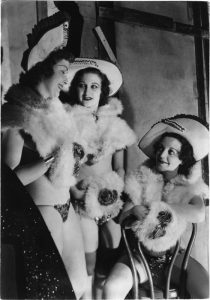ARTISTS
Margaret Bourke-White was a pioneering figure in 20th century documentary photography and is famous for her scenes of modern industry, of the Great Depression, and of political and social movements in the 1920s through 1950s.
As a founding mother of LIFE (she shot the first cover), she became a world-famous symbol of swashbuckling photography. And that she did it in a male world made her success even more spectacular.
During her unique career, Bourke-White was torpedoed in the Mediterranean, strafed by the Luftwaffe, stranded on an Arctic island, bombarded in Moscow, and pulled out of the Chesapeake when her chopper crashed. She was the first Western photographer to document Soviet industry after the revolution, to create a travelog of Czechoslovakia and other Balkan states just before Hitler moved in to ignite World War II, and to be stationed in Moscow just before Germany bombed its former ally.
Aggressive and relentless in pursuit of pictures, Bourke-White had the knack of being at the right place at the right time. For example, she interviewed and photographed Mohandas K. Gandhi a few hours before his assassination in India. And she was the only American photographer in the Soviet Union in 1941 while the battle for Moscow raged. Alfred Eisenstaedt, her friend and colleague, said she was great because there was no assignment, no picture that was unimportant to her. She was also credited for starting the first photo lab at LIFE.
As an artist, Bourke-White continued to use photography as an instrument to examine social issues from a humanitarian perspective.
She witnessed and documented some of the 20th century’s most notable moments, including the liberation of German concentration camps by General Patton in 1945, the release of Mahatma Gandhi from prison in 1946, and the effects of South African labor exploitation in the 1950s. She was a great and tenacious photographer. Her work was her life, and her life was flamboyantly spectacular. Her career was cut short in 1966 due to Parkinson’s disease, she died in 1971.






 +49 89 29 73 42
+49 89 29 73 42